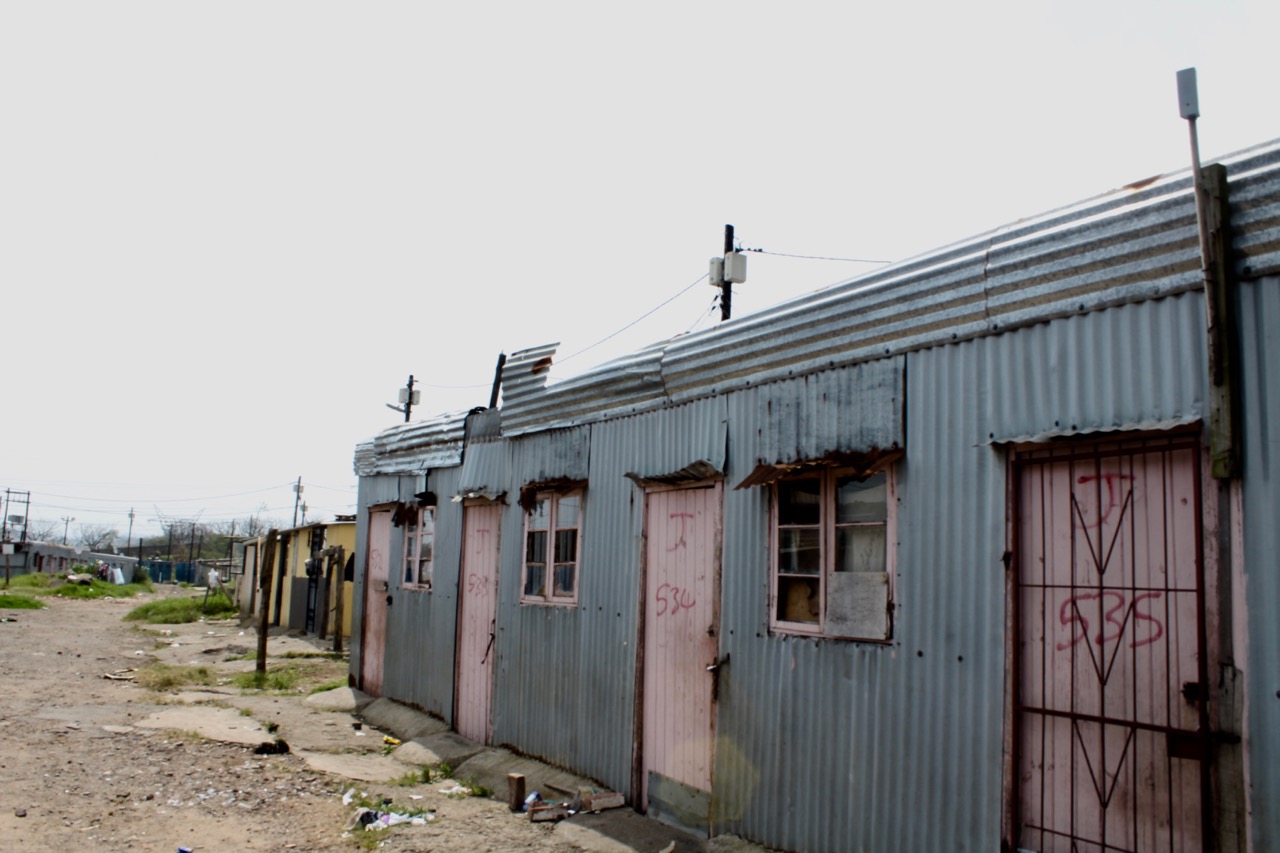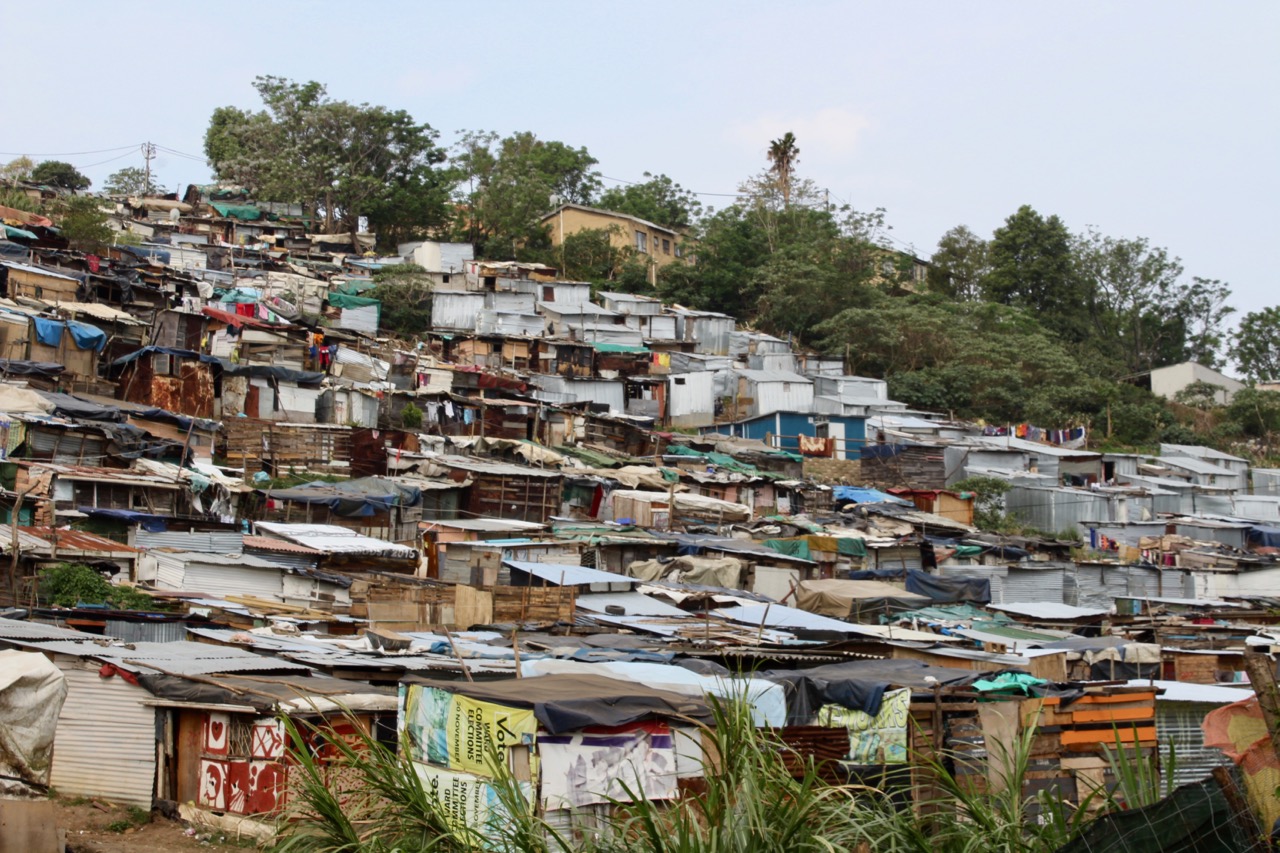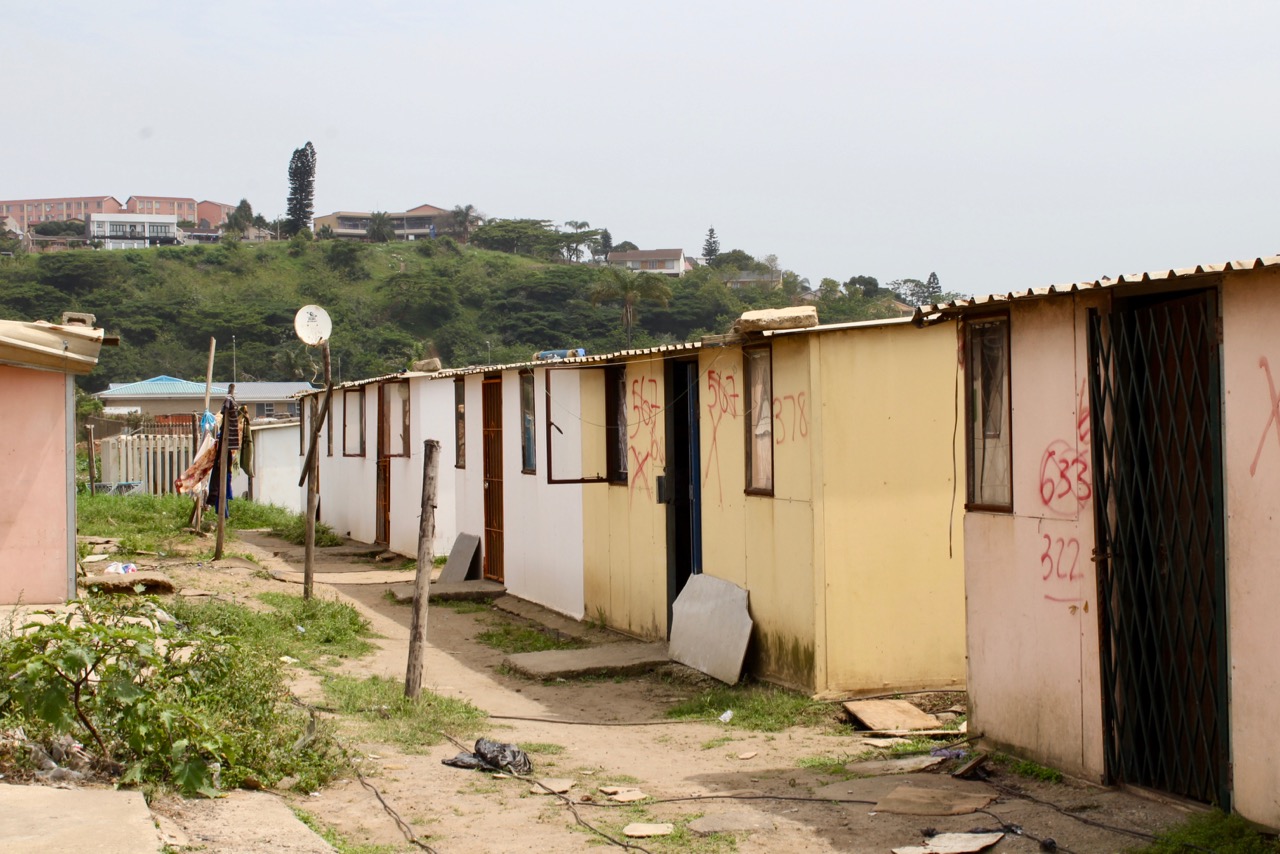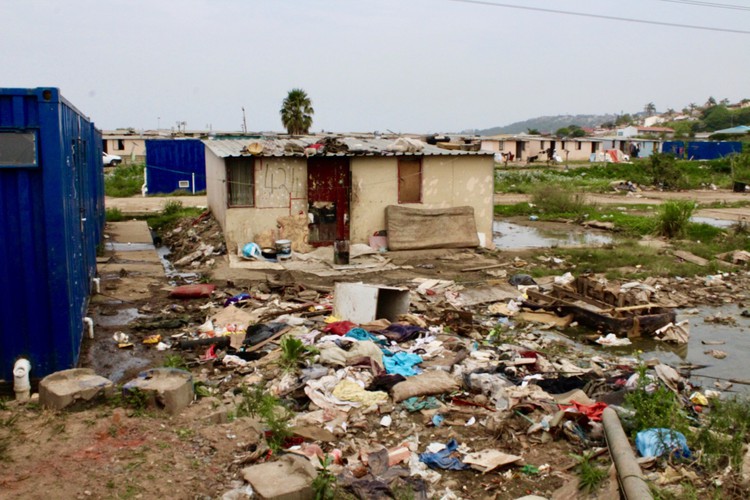Community moved for 2010 World Cup still living in transit camps
Thousands of families have been stuck for years in camps around Durban
Thousands of families have been living for years in transit camps in Durban. According to the eThekwini Municipality, about 9,000 units were built in response to disaster situations or for the relocation of people from informal settlements. GroundUp visited three of these transit camps.
Residents of Zamani transit camp in Umlazi, south of Durban, were moved there in 2009 to make way for the King Zwelithini Stadium and parking for the shopping centre at Mnyandu Mall ahead of the 2010 FIFA World Cup.
At the time, residents say, they were told it would be for eight months. Eight years later, thousands are still living in one-roomed transit units made from board and corrugated iron.
They have no legal electricity supply. The area is an old riverbed which floods after heavy rainfall. Live wires connected from nearby traffic and street lights lie exposed on the ground. Drains are blocked at the communal toilets. Sanitation is poor and raw sewage is visible on the surface. The settlement is next to a dangerously busy road. The homes are falling apart as they were never designed to last this long.
“When we were moved, the municipality said we’d only be here for eight months and thereafter we’d be moved to Cornubia in uMhlanga,” says community committee member Sifiso Shelembe. “The mayor was here last Thursday to give us food parcels after the flood [after the storm] had left many destitute. In her speech she admitted that the land which we were placed on is a hazard. She told us that people were not supposed to be occupying this place, at least not for so long. She said that we’d be moved to a different transit camp.”
But Shelembe said residents rejected this plan. Provincial officials and successive councillors elected over the past eight years had all promised them houses but never delivered. They want RDP houses and not to be moved to another transit camp.
Khanyi Mkhize said: “When they moved us we registered for RDP houses which we would soon live in. I was registered for a house in Illovu. I was then told that my house was ready in 2014. I signed for it, but never got the key. I was later told I could not stay there as members of the military were now staying there. When we questioned this, nobody had answers for us.”
She says they were then told they would be moved to Cornubia in Umhlanga.
A report by eThekwini Municipality states that R83 million will be set aside for the provision of 528 structures and infrastructure in Cornubia.
 Transit units in Barcelona Two near Umlazi. Photo: Khumbulani Khumalo
Transit units in Barcelona Two near Umlazi. Photo: Khumbulani KhumaloBarcelona Two
A few kilometres away from Umlazi is Barcelona Two in Lamontville. Residents were moved from Barcelona and promised better homes. Houses were built, but these were given to other people, claim the residents.
Bhekela Khwela lives in a one-roomed home made from rusting corrugated iron for seven years. It becomes unbearably hot inside. Sweat runs down his forehead as he shows GroundUp papers dating back to his removal.
“I’ve been here way too long. We were thrown in a forest away from the eyes of people as if we aren’t humans. They convinced us we would soon leave after our homes were built, a few months later. But seven years have passed, and we can see there is no evidence we’ll ever make it out of here,” said Khwela.

Foreman Road
Thembi Xulu, 60, lives in a transit camp in Clare Estate built seven years ago after a fire broke out in the high density informal settlement of Foreman Road.
“When a big fire destroyed most of our shacks in Foreman Road, most of us were left homeless. We lived in crowded tents for months and eventually these transit camps were built,” says Xulu.
According to Abahlali Basemjondolo, Foreman has more than 800 one-roomed units, many with at least six people. Water comes from the communal containers with toilet and taps outside. Not all of these are functioning.
“Although we were never guaranteed permanent residence in proper houses, these tin rooms in rows … have never been repaired since they were built in 2009,” says Xulu.
The Zondi family of 13 people say they cannot leave their one-roomed home after 7pm because of criminals. “We are all female. Our grandmother is our breadwinner and the criminals know this. We have been the target of so many break-ins, we’ve even lost count. … This is the worst life anyone can live,” said Khanyisile Zondi, the oldest granddaughter.
“I really wish the government would offer, especially for the elderly, properly structured homes so we would not have to move from shack to shack, reduced to sub-humans because we are poor,” she said.
eThekwini Municipality head of communications Tozi Mthethwa said: “The City did away with the waiting list approach to housing allocation in 2002. There is a database of all residents in informal settlements and transit facilities. This list is updated periodically and forms the basis of allocation to housing opportunities. The City targets specific settlements and transit facilities for upgrading and relocation so as to eradicate slum conditions.”

Next: Nohle drank steel wool and brandy to induce an abortion
Previous: We want to buy electricity, say East London residents
© 2017 GroundUp. 
This article is licensed under a Creative Commons Attribution-NoDerivatives 4.0 International License.
You may republish this article, so long as you credit the authors and GroundUp, and do not change the text. Please include a link back to the original article.



